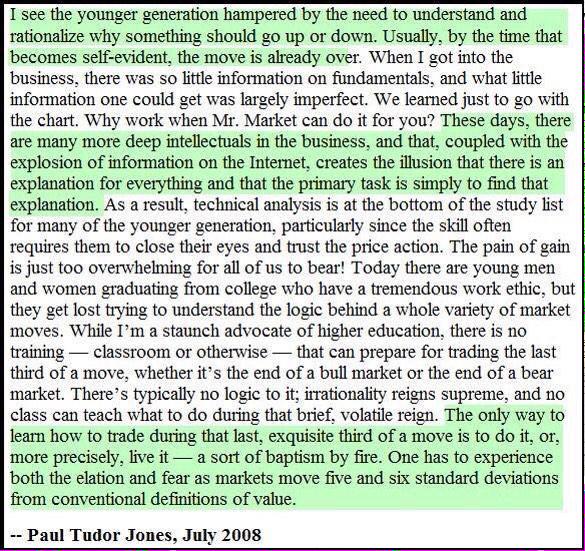Dr. Richard Peterson, in a recent post, provided an excellent example of the endowment effect: how we lose our objectivity once we take ownership of an asset. He brought pens to a seminar, but only had enough for half the audience. He then asked the group that received the pens to indicate how much they’d be willing to sell them to those who did not receive them. He also asked the group without pens how much they’d be willing to spend for one of the pens. The audience members without pens were willing to spend an average of $1.35 for a pen (which is close to the pen’s intrinsic value), but the members who received pens insisted on a selling price averaging $8.80.
Once the audience members owned the pens and considered them their own, they systematically overvalued the pens’ worth. Similarly, once we take a position in the market, it becomes *our* position and we value it simply because we have made it our own. That makes it extremely difficult to take a loss on our position, even when that is what our trading plans call for.
It’s a bit like houses in the current weak housing market: many owners are unwilling to reduce the selling prices of their properties because they value their homes too much. Once we own the asset, it can own us by coloring our perceptions and actions. (more…)


